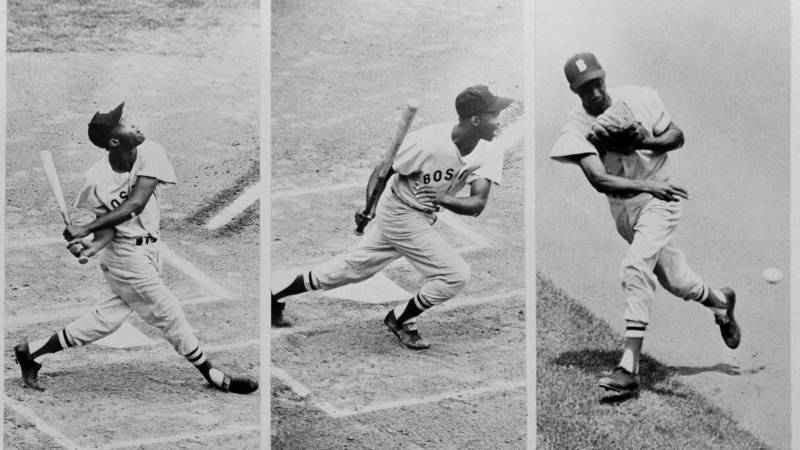KQED's Brian Watt interviewed one of Green's contemporaries, Nate Oliver, who played for the Los Angeles Dodgers for five seasons, as well as the Giants, Cubs, and Yankees.
Oliver and Green became friends after they retired as players, and often swapped stories of their major league days. Oliver says he thinks Pumpsie Green's challenges were even greater than Jackie Robinson's 12 years earlier.
Because he was in a situation where not just the players, but his owner, and the general manager, and the manager, and everyone in the organization, all those people were dead-set against him ever wearing or putting on a Boston uniform or stepping on a baseball field in Boston.
When he first got to spring training (in 1959), they were training in Scottsdale, Arizona. And Pumpsie actually had to get out of Scottsdale every day after practice, and be out of Scottsdale before nightfall. His teammates resided in Scottsdale, but he had to drive back to Phoenix every night.
There were times that he would sit alone in his room and think about some of the things that were happening to him, and then he'd wonder, you know, "why me?"
It's very difficult to be in a clubhouse for six months, seven months, and have to talk to the wall, or talk to your glove, and not have somebody else that you could express yourself, to somebody else that you could talk about things and how you felt and what was happening to you as an individual.
In an interview with the Red Sox released last year, Green described the period leading up to his debut at Fenway Park.
"Sometimes it was difficult, sometimes it was hard, sometimes it was impossible but I stuck with it," Green said.
Green remembered his first game at Fenway as deeply nerve-wracking: "There was more pressure on me that night than I don't know what. I couldn't relax."
The stands were packed with people who wanted to see him play.
"As I was approaching home plate I got a standing ovation," Green remembered. "He threw me a slider and I hit it, I got out in front and hit it off the Green Monster in left center field, and the crowd went crazy."
Green played shortstop and second base for the Red Sox, but said later that he "never did get comfortable, never ... To me it was almost like opening night every game."
He did praise baseball great Ted Williams as welcoming. According to the team, Williams "made a point of warming up with Green prior to games to help him feel like part of the team."
